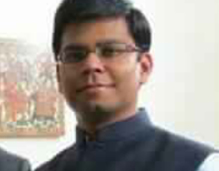Uzbekistan: The Key Pillar of India’s ‘Act North’ Engagement
- March 2020 |
- Strategic Analysis
India has redefined its engagement with Eurasia in the last few years. It has sought to re-energize ties with its extended neighbourhood based on its historical linkages, positive and benign image, and overlapping security and economic interests. In this context, ties with Uzbekistan remain a key pillar of India’s Eurasian calculus. Tashkent’s strategic location at the crossroads of Central Asia and abundant natural resources form the fulcrum around which the security of Central Asia revolves. The country’s ongoing dynamic phase of accommodative regional cooperation has added a new dimension to the Central Asian political landscape. At a time when the entire region is undergoing a significant transition, marked by new strategic equations and alignments between both the regional and extra-regional powers, a new India is seeking to build meaningful cooperation with a new Uzbekistan which is focused on energy, trade, education, connectivity, and security.





